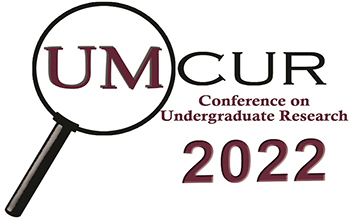Project Type
Presentation
Faculty Mentor’s Full Name
Phyllis Ngai
Faculty Mentor’s Department
College of Humanities and Sciences
Abstract / Artist's Statement
Advancements in online platforms can lead to a more widely informed public, but they also create room for false information. Misinformation about the COVID-19 vaccine has become a public safety issue. Our team created a project that contributes to solving this global problem. Our project’s mission is to tackle vaccine related misinformation. The project utilizes a human-centered method to design a solution.
Based on our literature review the main problem is skepticism about getting vaccinated. Our solution is to create an online portal targeted at college students, highlighting the benefits of vaccination, examining examples of misinformation, providing trusted sources for vaccinated and unvaccinated individuals and persuading misinformation receivers to improve their media literacy.
Our understanding of the target audience increased via QR code stickers that directed unvaccinated individuals to a survey. This data, alongside student and expert interviews, helped design our platform. The site’s tailored to the concerns of those less likely to receive the vaccine due to misinformation. Part of our campaign is to use Facebook to direct people to our website, which has had nearly 433 views since its launch in February.
A stronger future in a virtual world requires sharpening the world's ability to spot misinformation. Our project called upon our target audience to engage in 4 Rs: rethink COVID vaccine information they receive, re-evaluate information by fact-checking, reconsider getting vaccinated so that they can reconnect with their family and friends safely. We built an internationally accessible website, fostered an accepting online environment for education and asking questions to a healthcare professional, increased awareness of COVID-19 misinformation, connected individuals with different perspectives on vaccinations, encouraged young people to improve their media literacy, developed an appealing brand for vaccine-hesitant young people, contributed to research about campaign strategies for reducing vaccine hesitancy, and we’ve sparked a global conversation.
Category
Franke Global Leadership Initiative
Rethinking Trust, Reconnecting Us - Website and Campaign to Combat Misinformation
UC 220
Advancements in online platforms can lead to a more widely informed public, but they also create room for false information. Misinformation about the COVID-19 vaccine has become a public safety issue. Our team created a project that contributes to solving this global problem. Our project’s mission is to tackle vaccine related misinformation. The project utilizes a human-centered method to design a solution.
Based on our literature review the main problem is skepticism about getting vaccinated. Our solution is to create an online portal targeted at college students, highlighting the benefits of vaccination, examining examples of misinformation, providing trusted sources for vaccinated and unvaccinated individuals and persuading misinformation receivers to improve their media literacy.
Our understanding of the target audience increased via QR code stickers that directed unvaccinated individuals to a survey. This data, alongside student and expert interviews, helped design our platform. The site’s tailored to the concerns of those less likely to receive the vaccine due to misinformation. Part of our campaign is to use Facebook to direct people to our website, which has had nearly 433 views since its launch in February.
A stronger future in a virtual world requires sharpening the world's ability to spot misinformation. Our project called upon our target audience to engage in 4 Rs: rethink COVID vaccine information they receive, re-evaluate information by fact-checking, reconsider getting vaccinated so that they can reconnect with their family and friends safely. We built an internationally accessible website, fostered an accepting online environment for education and asking questions to a healthcare professional, increased awareness of COVID-19 misinformation, connected individuals with different perspectives on vaccinations, encouraged young people to improve their media literacy, developed an appealing brand for vaccine-hesitant young people, contributed to research about campaign strategies for reducing vaccine hesitancy, and we’ve sparked a global conversation.
